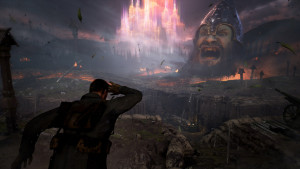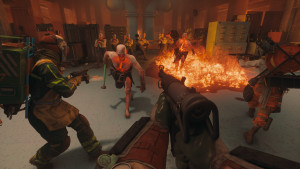Last chance for early bird pricing! Subscribe by June 25th to receive the debut issue
The 3DS’ Importance For RPGs

Role-playing fans probably didn’t anticipate that the Nintendo DS would become a go-to platform for the genre. After all, RPGs have classically dominated home consoles; the PlayStation 2 epitomized the RPGs of the era, bursting with cutscenes and voice acting. With this generation and its superior technology, though, production costs have skyrocketed, which has increased expectations. These challenges have been tough for RPG developers to overcome, and cutting costs by releasing RPGs on handhelds seem to be part of the solution.
Everything is a risk in this economy, and for publishers there rarely is a sure thing for profit – even with triple-A titles. Providing a large budget to a title with a potentially limited audience isn’t the best business decision. This was clear at the dawn of the generation when games like Blue Dragon, The Last Remnant, and Enchanted Arms debuted. It seemed like the heavy flow of RPGs would continue, but aspects like the technical problems in the Last Remnant and Blue Dragon’s lack of innovation signaled that many developers couldn’t make the new formats work. When games did have the budget to do everything right from a technical perspective, the stumbling blocks appeared on the creative side, like Star Ocean: The Last Hope’s awful story and horrific voice acting. But despite the apprehension in funding classic RPG projects for consoles, the fanbase is so dedicated that it has swayed some publishers to localize titles that were initially passed over, like Xenoblade Chronicles and The Last Story. The undying passion proves there’s still a market for these games, which I hope instills confidence in publishers to not be afraid to back a niche title.
The Nintendo DS provided a safe haven for this shrinking, yet critical market with its wide user base and unique dual-screen setup. Not only did the DS extend the life of series like Dragon Quest, Golden Sun, and Shin Megami Tensei, but it also housed new favorites like Radiant Historia. With low production costs, developers could take risks, including cartography in Etrian Odyssey and the simultaneous use of classic and touchscreen controls in The World Ends With You. These chances invigorated the genre and produced some of the most well-loved RPGs to come out of Japan in recent years.
I’ve been watching the 3DS since its launch in March 2011, and the handheld is taking steps to be an RPG juggernaut just like the Nintendo DS. Most importantly, the 3DS needs to take these steps to keep cult franchises alive – otherwise I’m worried they’ll fade into obscurity. I’m not blind or ignorant; I know outside of Final Fantasy, Japanese RPGs are niche. I acknowledge some of the series that I have the most nostalgia for, like Suikoden, no longer have mass market appeal in the U.S. The transition is daunting – going from the cache of PS2 RPGs to a new generation where the livelihood of many cult franchises is questionable isn’t easy.

The 3DS is already showing promise to continue the RPG dominance of its predecessor. Initially, the handheld’s early offerings were, unsurprisingly, ports such as Tales of the Abyss and Devil Survivor: Overclocked. But now things are starting to shift to completely new games. This past July, Kingdom Hearts: Dream Drop Distance hit. Atlus recently announced Etrian Odyssey IV: Legends of the Titan is coming out early next year, and Fire Emblem: Awakening is confirmed for a North American release in 2013. Fire Emblem is a perfect example of a fan favorite series returning to the surface again. The 3DS is the perfect venue to test if the love for the series is still there, and I’m hopeful that if sales do well, it might inspire developers to take a chance on releasing a game for a home console.
Additionally, more games in established series are hitting Japan, like Shin Megami Tensei IV, which I have every confidence will see a localization in North America. These releases are further sending the message that the 3DS will keep on the DS’ reputation for being the RPG connoisseur's destination. But I also worry that the 3DS faces some obstacles the DS didn’t face. The DS’ small cartridge size meant that developers could cut costs on voice acting, which just doesn’t fly when the largest 3DS cartridge is almost the size of a dual-layer DVD. Graphics also have to take a step up to make use of the 3DS’ enhancements, and with each new platform, expectations from consumers rise. It makes sense; gamers are paying more money for what is supposed to be a superior system, so the games should follow suit.
If the 3DS can keep up with increasing technology, the future for the 3DS and RPGs looks bright. I’m thankful that publishers are supporting the handheld, because it opens the door for games that probably wouldn’t receive the funding required for a console iteration. The 3DS’ ability to revive idle franchises is already proving fruitful with Fire Emblem. Can you imagine what other franchises have a chance to make a comeback?









